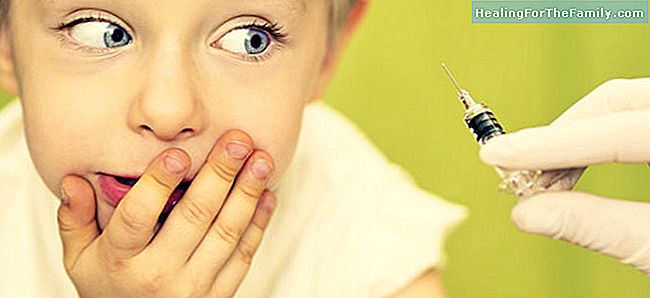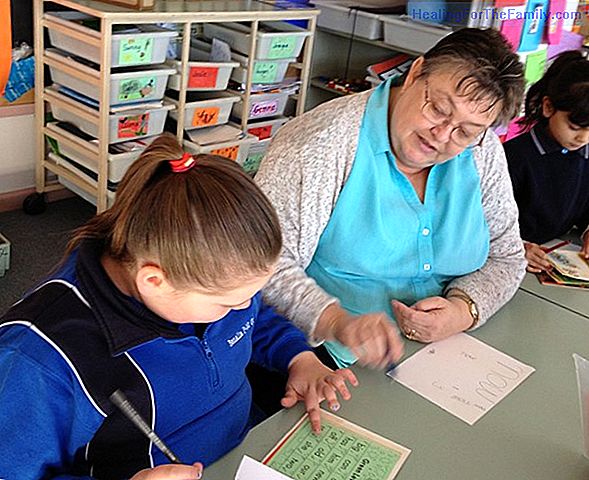Strategies to fight children's fear of injections
There are several classic childhood fears: to monsters, to darkness, to be left alone, to something happens to their parents ... And in doctor's offices: a to be punched. The poor children, every time they come into the office and see a person in a robe or pajamas, think that syringes, needles and p
There are several classic childhood fears: to monsters, to darkness, to be left alone, to something happens to their parents ... And in doctor's offices: a to be punched.
The poor children, every time they come into the office and see a person in a robe or pajamas, think that syringes, needles and pain will come next. This panic is a difficult feeling to eradicate, because it is very rooted in the general population. Here I propose several guidelines for combating children's fear of injections.Fear of children to injections, how to help them?
1- Never tell your child about "behave yourself, otherwise the doctor will give you an injection"

. This phrase horrifies me! If your child misbehaves, you will have to scold yourself, for that you are his parent / guardian. That is, assume your share of responsibility and do not delegate the reprimand to a doctor. In addition, neither doctors do not nail needles to anyone as a sign of punishment or advise to be done. I would miss more.2- Forget about the fact that punctured medications are more effective
. It's not like that, I'm sorry. But there are still many people who think that drugs administered intramuscularly are more effective than if they are given by mouth. This fact is false. Therefore, do not ask your pediatrician to prescribe an injectable medication yes or yes. If your child can consume a drug that will be absorbed through the digestive tract, the better.3- Do not ask for an analysis of the child.
Rely on the criteria of pediatricians. Blood tests are not always necessary, far from it. If the process of your child is going to benefit from knowing the alterations of the blood count, the biochemistry or the quantifiable parameter, the doctor will ask for it. Otherwise, no. And nothing happens. 4- If your child, for whatever reason, has to get a puncture,
explain that this measure will help heal . Stay with him, shake his hand, and never say "how bad is the doctor or how bad the nurse is", please. The toilets do not deposit our ethical qualities on the needles. If we have to puncture a child, it is because with the puncture your child will improve.5-
Vaccines are not in vain injections, they are preventive actions that have been shown to increase the survival rates of the population. Nothing better than explaining to your child, since he was a child, that vaccines will prevent him from suffering very serious illnesses. And it's a good thing if you can receive them. Doctors and nurses, for our part, also have to do their homework. We have to make a rational use of the diagnostic tests (that is, before asking for an analysis we have to reflect on whether this will help us in something), and we have to resort to strategies to reduce the discomfort of the puncture. Why not use sprays or anesthetic patches more frequently? That would help us a lot when the children saw our work with different eyes.












